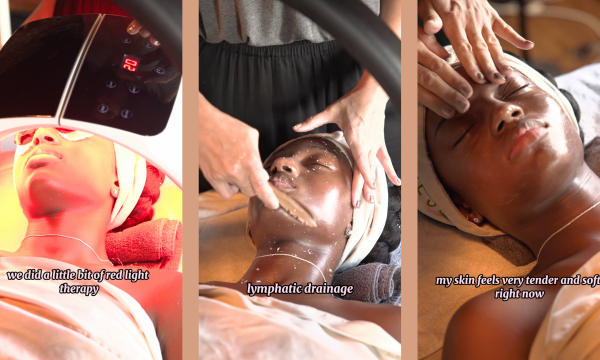Mental health is a prevalent topic in today’s culture. Whether it’s your friend, family member or even your co-worker, it’s important to be on the lookout for signs of depression which could lead to self-destructive behavior. But, how do you know what to look out for?
LATF looks to Board Certified Psychiatrist, Dr. Neil Price for the answers.
Specializing in personality disorders, Dr. Price is the author of On the Edge: The Love/Hate World of the Borderline Personality. Having taught at medical schools and presented at conferences for the American Psychiatric Association, he has hosted popular radio shows including “Ask The Doctor,” “Hopeline” with Kat Simons on B103.9 FM (now 98.1 FM) and “New Frame of Mind,” a weekly show on WICC in Fairfield County, Connecticut.
Today’s topic is: Borderline Personality Disorder with Dr. Price:
In psychiatry, we define “the edge” as a short trip to decompensation. This may include hurting oneself or hurting others as our functioning declines; yielding anger and hopelessness.
When I was a psychiatric resident at Yale University, everyday was stressful. My major goal was to stabilize patients who suffered from: Borderline Personality Disorder.
What is Borderline Personality Disorder?
About two-thirds of borderline patients are females who often feel depressed and self destructive. Some of them, along with male borderline patients often feel angry and frightened of others. They then begin to consider striking and lashing out.
Working with these patients on a daily basis led me to eventually write the book called, “On The Edge: The Love – Hate World of the Borderline Personality.”
It became clear that many psychiatric clinicians wanted to learn more about borderline patients and how to help them. I went on a book tour of psychiatric clinics in different states to educate mental health professionals about the disorder and efficient treatments.
Here are the eight major symptoms and problems that we see in Borderline Personality:
- Relationship problems marked by a pattern of unstable and intense relationships which cover an area from extreme adulation to intense disgust and hatred.
- Potentially self damaging impulsive behaviors. These include:
- Overspending
- Sexual behaviors
- Substance abuse
- Shoplifting
- Reckless driving
- Binge eating
- Rapidly changing moods, from depression to irritability.
- Inappropriate periods of intense anger leading to temper and physical fighting. Ventilating these feelings can improve controls.
- Recurrent self-mutilating or suicidal threats and behaviors.
- Increased capacity to discuss these feelings and behaviors will decrease them.
- Persistent identity disturbances which renew self esteem difficulties that affect values and career goals. This is helped by therapeutic discussions about “Who we are” and “What is important to us.”
- Chronic feelings of emptiness or boredom which create isolations.
- Focusing on some areas and people who make the person happy helps.
- Frantic efforts to avoid real or imagined abandonment. This yields something that’s called “Porcupine’s Dilemma:” affecting that person to avoid finding the love and warmth they desire because “getting too close might cause them to get stung.”
TREATMENT:
Here are the best ways to make progress with BORDERLINE SYMPTOMS & BEHAVIORS:
- It’s up to the parenting in the first three years of life. Keeping a satisfactory level of caring for the child is protective and helpful. Not too much and not too little in the caring department. An inadequate level of parenting with overbearing behavior or absence and substitute care is more likely to cause “SPLITTING:” making the parent seem ALL GOOD or ALL BAD.
- Necessary and helpful treatments which address:
- Biochemical: Avoid use of street drugs and alcohol. Utilize medical follow-up to treat depression and bi-polarity with antidepressants and stabilizers.
- Psychological: Arrange for regular psychotherapy with a therapist to help improve communication, coping supports and emotional ventilation.
- Social: Seek regular group treatment, time with friends and supportive adults.
Years ago, The Beatles had a very popular song called, "Help!," with the lyrics, “I need somebody, not just anybody!”
We can help Borderline patients get what they need by intervening in childhood years and by helping them utilize bio-psycho-social ways to feel and function better!
About Dr. Neil Price:
Earning his medical degree at Free University in Brussels, Belgium, Dr. Price is certified as a diplomat of the American College of Psychiatry and Neurology. He began his psychiatric training at Eastern Virginia Graduate Medical School in Norfolk, VA, before completing his residency at Yale University Medical School in New Haven, CT, where he was Chief Resident of the Connecticut Mental Health Center.
Dr. Price’s Frasier-esque radio persona and his clinical practice focus on helping people with relationships, understanding their feelings and getting the right treatment. On his shows and in his lectures, Dr. Price weaves popular songs into his prescriptive advice to bring his message home.
He most recently taught a bi-weekly seminar to women on “Improving Relationship Radar” in the Silver Hill Hospital Intensive Outpatient Program. Dr. Price was the Service Chief to the Transitional Living Program at Silver Hill Hospital in New Canaan, CT. Over the years, he has treated patients in hospitals and clinics in Connecticut, Virginia and Maine.














